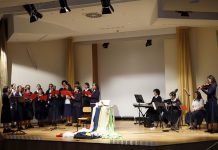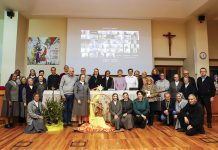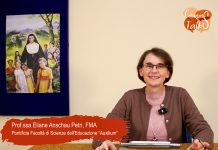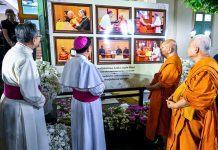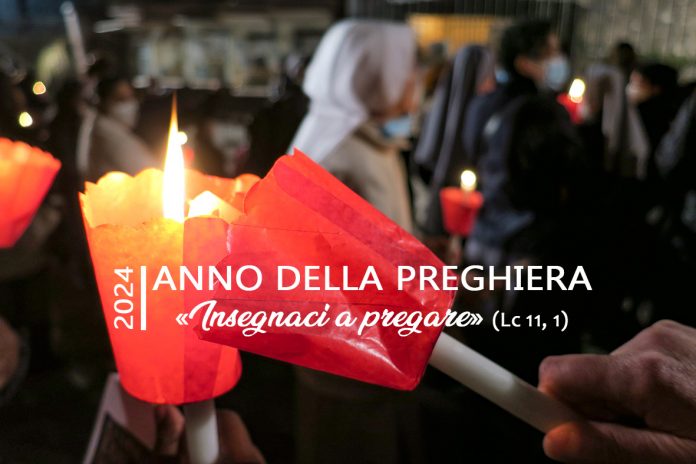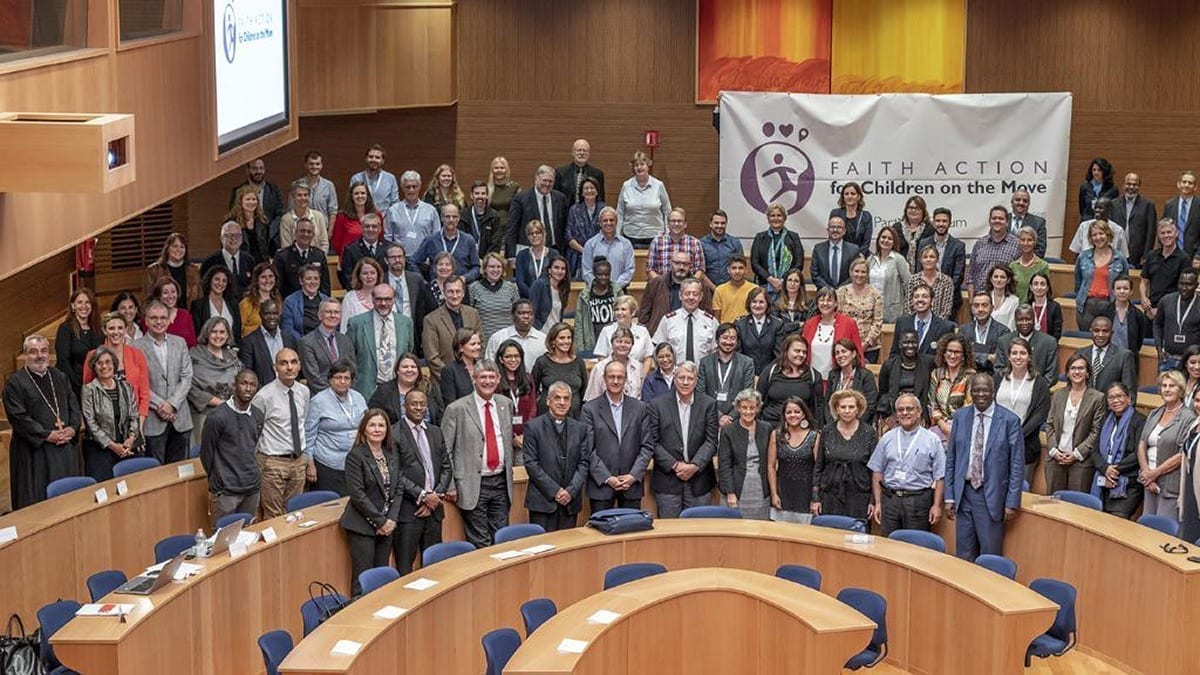Rome (Italy). On Sunday, 21 January 2024, at the end of the Angelus, Pope Francis officially opened the Year of Prayer in preparation for the Jubilee which will begin on 24 December 2024, whose motto is “Pilgrims of Hope”:
“The coming months will lead us to the opening of the Holy Door, with which we will begin the Jubilee. I ask you to intensify your prayer to prepare us to live this event of grace well and to experience the power of God’s hope. This is why today we are beginning the Year of Prayer, that is, a year dedicated to rediscovering the great value and the absolute need of prayer in personal life, in the life of the Church and of the world”.
In the press conference on 23 January, Cristiane Murray, Deputy Director of the Holy See Press Office, recalled that in 2020 the Pope dedicated a cycle of 38 catecheses to what he defines as “the remedy to warm up a lukewarm faith, the medicine of faith, the restorative of the soul” and which, in preparation for the Holy Year of 2025, the Dioceses are invited to propose moments of individual and community prayer, pilgrimages, journeys of schools of prayer with monthly or weekly stages presided over by the Bishops, in which to involve all the people of God.
Msgr. Rino Fisichella, pro-prefect of the Dicastery for Evangelization, gave a brief update on the activity of the Dicastery in view of the Jubilee, the preparation in which 723 people are involved, subcommittees for major events, 208 representatives of the Italian Dioceses, 90 representatives of the Episcopal Conferences of the world. He then recalled the Letter addressed to him by the Holy Father on 11 February 2022, which is already “a program” for this year of grace:
“Since then, I am glad to think that the year preceding the Jubilee event, 2024, can be dedicated to a great ‘symphony’ of prayer. First of all, to recover the desire to be in the presence of the Lord, to listen to Him and to adore Him. Prayer, moreover, to thank God for the many gifts of His love for us and to praise His work in creation, which commits everyone to respect and to concrete and responsible action for its safeguard. Prayer as the voice “of the heart alone and of the soul alone” (Acts 4:32), which translates into solidarity and the sharing of daily bread.
Prayer that allows every man and woman of this world to turn to the one God, to express to Him what is placed in the secret of the heart. Prayer as the main way to holiness, which leads to living contemplation even in the midst of action. In short, an intense year of prayer, in which hearts open themselves to receive the abundance of grace, making the ‘Our Father’, the prayer that Jesus taught us, the program of life of every one of His disciples.”
The Year of Prayer thus comes to correspond fully to the need to prepare and live in their communities “an event that spiritually enriches the life of the Church and of the entire People of God” with the spirit of expectation typical of Christian hope.
He therefore explained, “It is not a Year with particular initiatives. Rather, it is a privileged time in which to rediscover the value of prayer, the need for daily prayer in Christian life, how to pray, and above all, how to educate to pray today, in the age of the digital culture so that prayer can be effective and fruitful. We cannot hide that these years manifest a profound need for spirituality. As strong as the cry of technology is that seems to correspond to all our desires, just as deep becomes the demand for a true spirituality that leads every person to meet self in the truth of their own existence and therefore in the consistent relationship with God.
There are many people who pray every day; perhaps, I dare say, that everyone prays. No statistic would be able to answer with correct figures and percentages to this very intimate moment of people who live the pluriform of prayer as a very personal time. From those who mark themselves quickly with a Sign of the Cross to those who participate in the daily Eucharist, there is such a wide range of ways of praying that no one can fully describe them. From the fast prayer to the distracted one; from the contemplative one to the one full of tears for the pain… prayer does not allow itself to be trapped in a fixed pattern because it is the believer’s personal relationship with God Himself within that intimate and exclusive relationship that distinguishes our faith.
The Year of Prayer, therefore, fits into this context to foster the relationship with the Lord and offer moments of genuine spiritual rest. An oasis sheltered from daily stress where prayer becomes nourishment for the Christian life of faith, hope, and charity.”
He then specified that it will not be a matter of a multiplication of initiatives that will hinder the local Church, but of “a period in which every planned initiative is effectively supported precisely because it places prayer at its foundation (…) so that the Church’s prayer may come again to invigorate and liberate the life of every baptized person.”
The expression of the disciples addressed to Jesus, “Teach us to pray” (Lk 11:1) will be this year’s motto, and “it is already a prayer that rises from the depths of the heart with the desire to be heard.”
Together with the Undersecretary of the Dicastery, Msgr. Graham Bell, presented some materials to accompany meditation and reading to better understand the value of prayer. First of all, there are the 38 catecheses of Pope Francis (from 6 May 2020 to 16 June 2021), and also a series of eight small volumes entitled “Notes on Prayer”, published by the Vatican Publishing Library, of which the first, “Pray today. A challenge to win,” is already available in bookstores.
Also proposed are Resources that propose the various expressions of prayer in community, in the family, for priests, cloisters, shrines, young people that will be available in digital form, so that they can be modified according to local usages and purposes.
Msgr. Fisichella then reminded that on 9 May 2024, the Feast of the Ascension, “Pope Francis will make the Bull public, and from that moment, the subject of reflection and direct preparation for the Jubilee will be the Pope’s Apostolic Letter.”
During this year, the Pope himself will also give life to a ‘School of prayer.’ “There will be moments of encounter with some categories of people to pray together and understand some forms of prayer: from that of thanksgiving to that of intercession; from that of contemplation to that of consolation; from that of adoration to that of supplication…
Further information and updates
“I am certain that the bishops, priests, deacons, and catechists will find in this Year the most suitable ways to put prayer at the basis of the proclamation of hope that Jubilee 2025 intends to make resonate in a troubled time” (Pope Francis).



